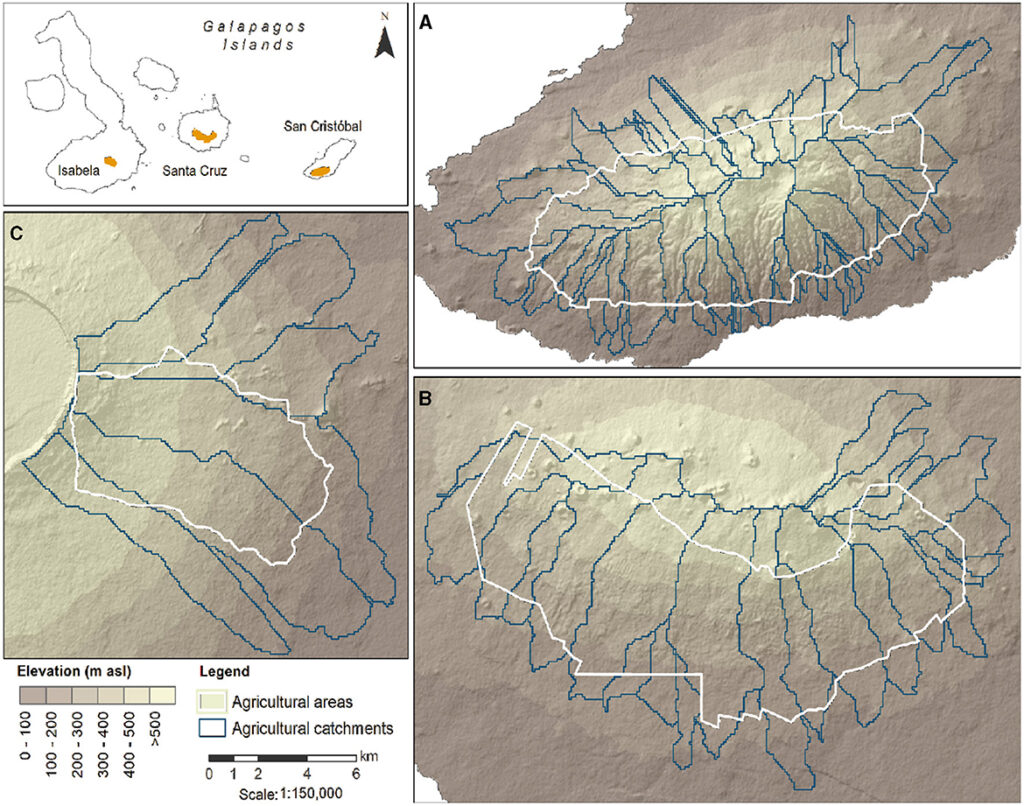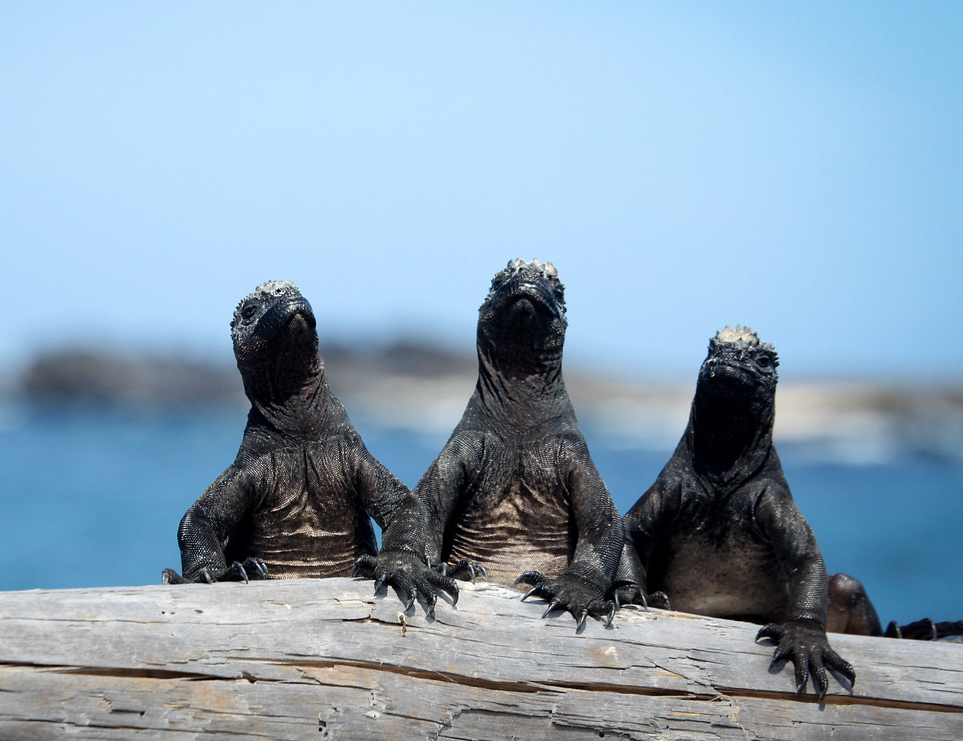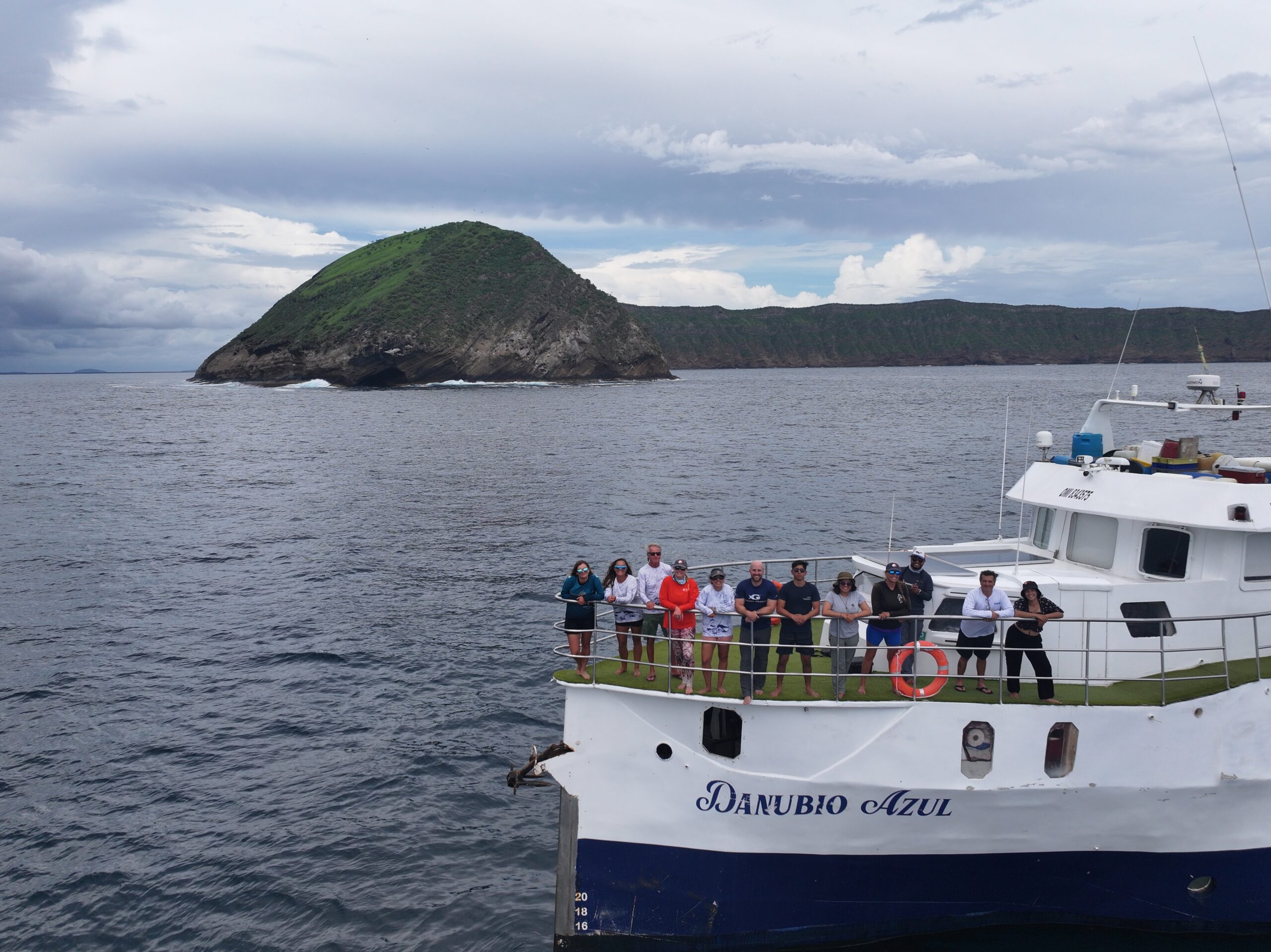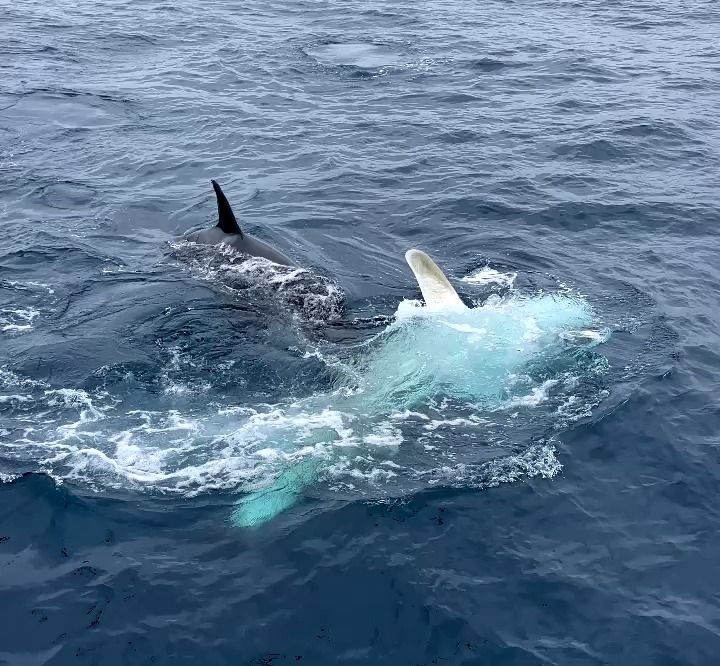The Galapagos Islands, a hotspot of ecological richness, face challenging climatic and development conditions which undermine regional water security. Yet, the way by which these conditions may change in the future is highly uncertain. In this study, we applied for the first time an uncertainty-based approach in the Galapagos Islands to understand thresholds and potential scenarios of risks to water security of agricultural catchments in the Galapagos Island. We applied a water systems model to the agricultural catchments as well as climate and land use scenarios to estimate physical changes in water availability and implications for drought and extreme flow thresholds. Our results highlight the key role of baseflow and its important sensitivity to precipitation changes in determining water security states in the Islands. In fact, a decrease in just about 25% of total water flows, from historical conditions, in the Islands would drive drought conditions resembling those of the emergency state of 2016. We also note that under a land use scenario which promotes sustainable practices, the robustness of the Islands to climate variations increases. Our study then provides the basis for an application of uncertainty-based approaches to enhance resilience of the agricultural water systems as well as other systems. Our results also emphasize the need to design flexible and comprehensive policies in the water, agricultural and interconnected sectors which consider the interlinkages of climate with other social and economic variables.
Read the article in the link: www.frontiersin.org/journals/water/articles/10.3389/frwa.2023.1245207/full






